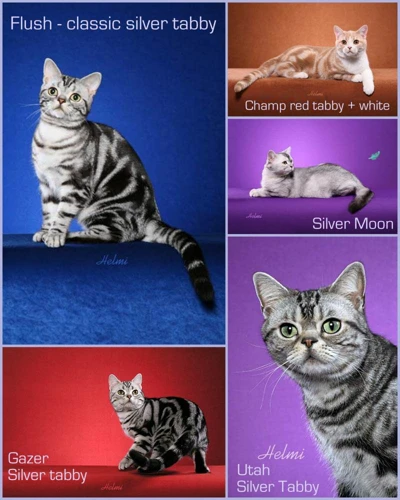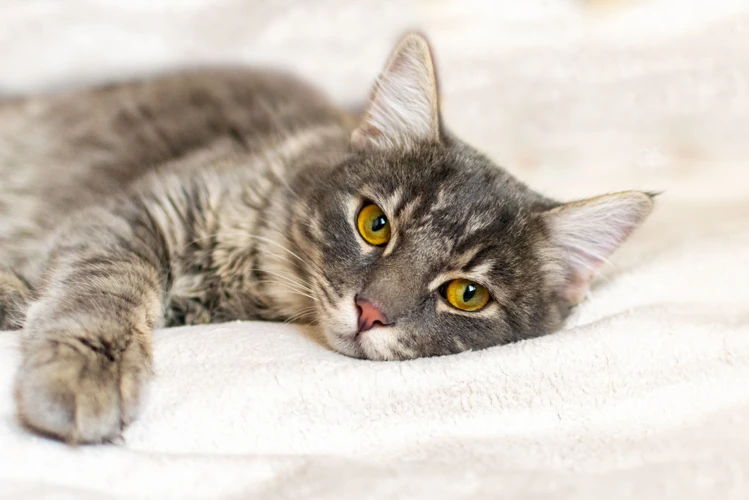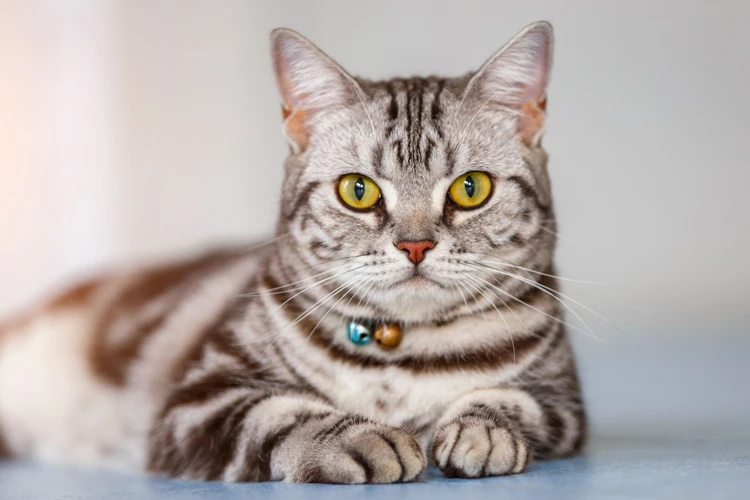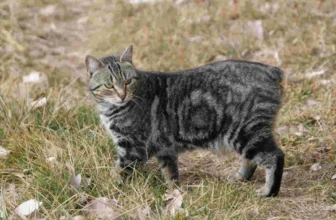As a loving cat owner, it’s heartbreaking to see your American Shorthair cat struggling with arthritis. You might be wondering what you can do to help ease your furry friend’s pain and stiffness. Managing arthritis in cats can be a challenging task, but there are various tips and tricks you can implement to improve their quality of life. In this article, we’ll delve into the causes, symptoms, and diagnosis of arthritis in American Shorthair cats, as well as explore various methods to manage their condition, including medications, supplements, diet changes, physical therapy, and other forms of care to help ease the discomfort of your feline friend.
Understanding Arthritis in American Shorthair Cats

As an American Shorthair cat parent, it’s essential to understand the health issues that your feline friend may face, including arthritis. Arthritis is a joint disease that can cause your cat discomfort and limit their mobility. It’s crucial to know the causes and symptoms of arthritis to manage it effectively. This knowledge will help you make informed decisions about your cat’s health and wellbeing. In this section, we’ll cover everything you need to know about arthritis in American Shorthair cats, from its causes and symptoms to diagnosis and management. To ensure your cat is healthy and happy, it’s also essential to address their other health issues. Check out our article on Health Issues in American Shorthair Cats to learn more.
Causes of Arthritis in American Shorthair Cats
Arthritis in American Shorthair Cats can be caused by a variety of factors, including old age, obesity, joint injury or infection, genetic predisposition, and underlying medical conditions including infections, autoimmune diseases, metabolic disorders and hormonal imbalances. The wear and tear of the joint over time can also lead to arthritis. It is important to note that while arthritis is often associated with aging, even young American Shorthair Cats can develop arthritis from obesity or trauma. Proper care and preventive measures, including regular exercise and routine vet checkups, can help identify the onset of arthritis early and mitigate its effects.
It is also important to note that genetics can play a role in the development of arthritis in specific breeds. American Shorthair Cats, for example, may be more susceptible to certain genetic health issues, including Arthritis. Breeders and owners must prioritize healthy breeding practices and provide their cats with a balanced diet that meets their special dietary needs and promotes overall health.
Additionally, specific health issues, such as diabetes, allergies, urinary tract issues, and dental problems can increase the risk of arthritis in cats. It is essential to manage these conditions effectively and proactively to minimize the chance of arthritis development. By addressing these underlying medical issues and promoting a healthy lifestyle, cat owners can help ensure that their American Shorthair Cats lead a comfortable and pain-free life.
Symptoms of Arthritis in American Shorthair Cats
Arthritis is a chronic disease and symptoms may develop gradually and become worse over time. Recognizing the symptoms of arthritis in American Shorthair cats is crucial to manage the condition effectively. Here are some of the common symptoms of arthritis in American Shorthair cats, which can also be seen in other cat breeds:
| Symptom | Description |
|---|---|
| Limping or lameness | Cats with arthritis may limp or seem to favor one or more joints. They may also walk with a stiff gait or have difficulty jumping or climbing stairs. |
| Inactivity or decreased activity | Cats with arthritis may show a reluctance to engage in activities they once enjoyed, such as playing or running. They may also spend more time sleeping or lying down. |
| Pain | Cats with arthritis may experience pain when touched or when moving around, and they may exhibit signs of discomfort, such as vocalizing, hissing, or growling. |
| Stiffness | Cats with arthritis may have difficulty moving, especially after they have been resting for a while. They may take longer to get up or lie down, or they may have trouble grooming themselves. |
| Behavioral changes | Cats with arthritis may become more irritable or aggressive, or they may become more clingy or vocal in seeking attention or comfort. |
If your American Shorthair cat exhibits any of these symptoms, it is important to take them to the vet for a thorough examination. With early detection, your veterinarian can recommend treatments and therapies to slow the progression of the disease and relieve your cat’s discomfort. Regular checkups with your veterinarian can also help to detect and manage other health issues in American Shorthair cats, such as dental issues, urinary tract issues, allergies, or diabetes. Providing a healthy, well-balanced diet and environment can also help to keep your American Shorthair cat healthy and happy.
Diagnosing Arthritis in American Shorthair Cats
Diagnosing arthritis in American Shorthair cats can be a bit perplexing as cats are known to hide their pain. It’s important to look for signs such as limping, reluctance to jump, and stiffness, as well as behavioral changes like irritability and reluctance to be touched. If you suspect that your American Shorthair cat may be suffering from arthritis, you should take them to a veterinarian for a complete evaluation.
During the evaluation, the veterinarian will perform a physical examination of your cat, focusing on the joints that are causing concern. Additionally, they may recommend an X-ray or MRI to examine the joint and identify any abnormalities. It’s important to highlight to your veterinarian any history of genetic health issues or any other health conditions your cat may be experiencing.
The veterinarian may ask for blood tests to rule out other conditions, such as diabetes, urinary tract issues or any other medical issue that might be causing your cat’s symptoms. Early diagnosis is key to managing arthritis in American Shorthair cats, ensuring that your cat gets the proper treatment they need. If you’re concerned about your American Shorthair cat’s health, be sure to schedule regular vet checkups. Regular checkups can help prevent or diagnose health issues early on, that’s why it’s important to keep up with preventative care for your cat.
Managing Arthritis in American Shorthair Cats

As American Shorthair cats age, they may experience arthritis, a condition that causes joint pain and stiffness. Managing arthritis in American Shorthair cats is crucial to ensure their comfort and quality of life. There are various methods and treatments available to help alleviate the symptoms of arthritis in American Shorthair cats. In this section, we’ll discuss some of the ways you can manage arthritis in your furry friend, including the use of medications, supplements, dietary changes, and physical therapy. By following these tips, you can help your American Shorthair cat live a happy and comfortable life.
Medications for Arthritis in American Shorthair Cats
Medications can be an effective way to manage arthritis in American Shorthair cats. Non-steroidal anti-inflammatory drugs (NSAIDs) are often prescribed to reduce inflammation and help alleviate pain in arthritic cats. However, it is important to note that not all NSAIDs are safe for cats and should only be used under the guidance of a veterinarian. Corticosteroids may also be used to reduce inflammation and pain, but long-term use can have adverse effects on a cat’s health.
Glucosamine and chondroitin supplements have also been shown to be effective in managing arthritis in cats. These supplements work to support joint health and can help reduce inflammation. They are available in various forms, including tablets, chewable treats, and liquid formulations.
Another medication option is disease-modifying osteoarthritis drugs (DMOADs). These drugs work to slow the progression of arthritis and can help protect joint tissue. DMOADs are usually administered by injection and are often prescribed for long-term use.
It is important to note that all medications have potential side effects, and it is essential to discuss any medication options with a veterinarian. Regular checkups and monitoring of a cat’s health can ensure that medications are working effectively and safely.
In addition to medications, supplementing a cat’s diet with Omega-3 fatty acids can also help manage arthritis symptoms. These fatty acids work to reduce inflammation and can be found in fish oil or other sources.
Green-lipped mussel extract is another supplement option that has shown promise in managing arthritis symptoms in cats. This extract contains a variety of nutrients that work together to support joint health and reduce inflammation.
While medication and supplements can be helpful in managing arthritis, they should be used in conjunction with other treatment methods, such as physical therapy and lifestyle changes.
Regular visits to the veterinarian can help identify any underlying health issues that may be affecting a cat’s arthritis. Additionally, maintaining a healthy weight, providing comfortable bedding, and modifying the home environment can also help manage arthritis symptoms. Dietary changes, such as introducing joint-supporting ingredients like glucosamine and chondroitin, can also be helpful.
There are various medications and supplements available for managing arthritis in American Shorthair cats, but it is important to work closely with a veterinarian to identify the best treatment plan for your cat’s specific needs.
Supplements for Arthritis in American Shorthair Cats
Supplements can be a great addition to the treatment plan for arthritis in American Shorthair cats. These supplements can help reduce inflammation and improve joint health. Here are some supplements that you can consider for your arthritic American Shorthair cat:
- Glucosamine: This supplement is commonly used to treat arthritis in cats. It can improve joint health and reduce inflammation. Glucosamine can be found in various forms such as powder, liquid, and chews. It is important to consult with your veterinarian regarding the appropriate dosage for your cat.
- Omega-3 fatty acids: Omega-3 fatty acids are known for their anti-inflammatory properties. They can be found in fish oil supplements. Adding fish oil to your cat’s diet may help reduce inflammation and pain associated with arthritis.
- Chondroitin: Chondroitin is another supplement that can help improve joint health. It is often combined with glucosamine and can be found in various forms such as powder, liquid, and chews.
- Methylsulfonylmethane (MSM): MSM is an organic sulfur compound that is believed to help reduce inflammation and pain associated with arthritis. It can be found in various forms such as powder, capsules, and chews. As with other supplements, it is important to consult with your veterinarian regarding the appropriate dosage for your cat.
Keep in mind that while these supplements may have benefits for managing arthritis in American Shorthair cats, they should not be used as a substitute for prescribed medications or veterinary care. It is important to consult with your veterinarian before adding any supplements to your cat’s treatment plan. Additionally, some supplements may not be suitable for cats with certain health conditions or those taking certain medications, so it’s important to discuss your cat’s individual needs with your vet.
Proper supplementation, along with other management techniques, can help your American Shorthair cat better cope with their arthritis and improve their quality of life. If you want to learn more about how to improve and maintain the health of your American Shorthair cat, check out this comprehensive guide to keeping your American Shorthair cat healthy.
Diet Changes to Improve Arthritis in American Shorthair Cats
Cats suffering from arthritis can benefit from a diet that includes certain ingredients to improve inflammation and joint health. Omega-3 fatty acids are particularly beneficial in reducing inflammation associated with arthritis. Providing cats with fish oil supplements or feeding them a diet that includes oily fish, such as salmon, can be beneficial.
In addition to omega-3 fatty acids, glucosamine and chondroitin supplements can also be beneficial for cats with arthritis. These supplements can help to protect cartilage and support joint health. Many pet food manufacturers now include these supplements in their formulations.
Weight management is also important for cats with arthritis. Extra weight can put added pressure on joints and make the pain worse. If your American Shorthair cat is overweight, consider giving them smaller, more frequent meals, and switching to a low-calorie or weight management cat food. It’s best to consult with your veterinarian before making any significant changes to your cat’s diet.
It’s important to note that not all cats will benefit from the same diet changes. For example, some cats may have special dietary needs due to other health issues, such as genetic health issues, dental issues, allergies, diabetes, or urinary tract issues. It’s best to work with a veterinarian to develop a diet plan that is tailored to your cat’s specific needs.
Diet changes can be an effective way to improve arthritis symptoms in American Shorthair cats. Omega-3 fatty acids, glucosamine and chondroitin supplements, and weight management all play important roles in managing this condition. Consult with your veterinarian to determine the best dietary plan for your cat based on their individual health needs.
Physical Therapy for Arthritis in American Shorthair Cats

It can be tough to watch your beloved American Shorthair cat struggle with arthritis. While medications and supplements can be helpful, physical therapy is another option to consider. Physical therapy can help your cat maintain or improve their flexibility, strength, and overall comfort. Plus, it can be a way to bond with your cat and provide them with some much-needed attention and affection. Let’s explore some physical therapy options to help your arthritic American Shorthair cat feel better. And if you want to learn more about special dietary needs for American Shorthair cats with health issues, check out our articlehere.
Exercises for Arthritis in American Shorthair Cats
As with humans, regular exercise can help manage arthritis pain in American Shorthair cats. However, it is important to choose exercises that are low-impact and comfortable for your cat. Here are some examples of exercises that can benefit your arthritic American Shorthair cat:
| Exercise | Description |
|---|---|
| Gentle Purring | Encouraging your cat to purr can have therapeutic effects on their joints, as the vibrations can help reduce inflammation. |
| Stretching | Stretching exercises can help improve your cat’s range of motion and flexibility. Encourage your cat to stretch by holding their favorite toy just out of reach, or by gently massaging their limbs. |
| Slow Walks | Short, slow walks on a flat surface can help improve your cat’s overall mobility without putting too much strain on their joints. Avoid steep inclines and stairs. |
| Interactive Play | Moderate playtime with interactive toys, such as feather wands or laser pointers, can provide mental and physical stimulation to your cat while allowing them to engage in low-impact exercise. |
| Scratching Posts | Providing your cat with a sturdy scratching post or pad can encourage them to engage in gentle stretching exercises while also satisfying their natural urge to scratch. |
It is important to consult with your veterinarian before starting any exercise regimen with your arthritic American Shorthair cat. They can provide guidance on which exercises are safe and effective for your cat’s specific needs and condition. Remember to start slowly and gradually increase the intensity and duration of exercise as your cat becomes more comfortable. With regular exercise, your arthritic American Shorthair cat can improve their joint health and enjoy a better quality of life.
Mobility Aids for Arthritis in American Shorthair Cats
Cats suffering from arthritis may have difficulty moving around, jumping, or climbing stairs. However, there are several mobility aids that can help to improve their quality of life. These aids can reduce the stress on their joints and make movement easier.
Here are some mobility aids that can assist your American Shorthair cat with arthritis:
- Stairs or ramps: Stairs or ramps can help your cat access high surfaces such as a bed or couch without having to jump.
- Low-sided litter box: A low-sided litter box can make it easier for your cat to get in and out without putting too much pressure on their joints.
- Orthopedic bed: An orthopedic bed can provide extra support for your cat’s joints and help them to sleep more comfortably.
- Heated bed: A heated bed can help to soothe your cat’s joints and ease their pain.
- Joint supplements: Joint supplements such as glucosamine and chondroitin can help to reduce inflammation and improve joint health.
- Soft paw covers: Soft paw covers can provide added traction for your cat and reduce the risk of slipping on smooth surfaces.
- Wheelchair: In more severe cases of arthritis, a wheelchair can help your cat to move around more easily and with less pain.
It is important to choose the right mobility aids that fit your cat’s specific needs and comfort level. Consult with your veterinarian before using any of these aids to ensure they are safe for your American Shorthair cat. By incorporating mobility aids, you can help to reduce your cat’s discomfort and improve their overall mobility and quality of life.
Massage and Acupuncture for Arthritis in American Shorthair Cats
When it comes to managing arthritis in American Shorthair cats, massage and acupuncture can be effective in providing relief. Both of these alternative treatments have been known to reduce pain and inflammation in cats suffering from arthritis.
Massage: Massage therapy is a hands-on technique that involves applying pressure to the muscles and joints. This therapy can help improve circulation, flexibility, and range of motion. In cats with arthritis, massage can help soothe sore joints, reduce stiffness, and increase comfort levels. By massaging the affected area, blood flow is increased, which helps to deliver oxygen and nutrients to damaged tissues, ultimately helping in reducing inflammation and promoting healing.
Acupuncture: This is another alternative therapy that has become more popular for managing arthritis in pets. Acupuncture involves inserting thin needles into specific points on the cat’s body, which can help reduce pain and inflammation. This technique is believed to work by stimulating the body’s natural healing mechanisms, thereby promoting healing and pain relief. Acupuncture can help cats with arthritis by reducing inflammation, improving mobility and reducing pain.
It is important to note that massage and acupuncture should only be performed by a licensed professional who has experience working with cats. These treatments should be used in conjunction with medication and other therapies, and should not replace standard veterinary care. Talk to your veterinarian to determine if massage or acupuncture would be appropriate for your arthritic American Shorthair cat.
Caring for an Arthritic American Shorthair Cat
Taking care of an arthritic American Shorthair cat can be a challenging task for any pet owner. However, with the right knowledge and approach, it is possible to create a comfortable living environment for your beloved furry friend. This section will cover several essential aspects of caring for an arthritic cat, including creating a comfortable environment, scheduling regular visits to the veterinarian, and monitoring symptoms to adjust the treatment as needed. Let’s dive deeper into these crucial elements of caring for your arthritic American Shorthair cat.
Maintaining a Comfortable Environment
Cats with arthritis require a comfortable environment to minimize pressure on their joints. Here are some tips for maintaining a comfortable environment for your arthritic American Shorthair cat:
- Cushioned bedding: Provide your cat with a soft, plush bed that is easy to climb in and out of. This will reduce the pressure on their sore joints while they rest.
- Easy access to food and water: Place food and water bowls in easily accessible locations. Raised bowls can also be helpful if your cat has trouble bending down to eat or drink.
- Litter box: Make sure the litter box has low sides for easy entry and exit. Place it in a quiet, easily accessible location.
- Temperature control: Keep the room at a comfortable, consistent temperature. Extreme heat or cold can worsen arthritis symptoms.
- Mobility aids: Consider using ramps or steps to help your cat access high places like beds or sofas with ease.
- Soft surfaces: Place soft surfaces, such as blankets or towels, on hard floors to make walking more comfortable for your cat.
By following these tips, you can maintain a comfortable environment for your arthritic American Shorthair cat and help them manage their arthritis symptoms. Remember to also monitor their symptoms and adjust their treatment as needed to ensure they are as comfortable as possible.
Routine Visits to the Veterinarian
Regular visits to the veterinarian are crucial in managing arthritis in American Shorthair cats. During these visits, the vet can monitor the progression of the disease and make necessary changes to the treatment plan. Here are some reasons why routine check-ups are important:
- Early Detection: Arthritis is a progressive disease, which means symptoms can worsen over time. By visiting the veterinarian regularly, arthritis can be detected early on and treatment can begin before it gets too severe.
- Pain Management: Vets can prescribe pain medication or adjust the dosage of existing medication to help manage pain. They can also recommend alternative therapies to complement medication.
- Preventive Care: Regular check-ups can also help prevent other health issues that can arise from arthritis. For example, cats with arthritis may be less active and at an increased risk of becoming overweight or developing urinary tract infections.
- Monitoring Body Condition Score: A veterinarian can provide guidance on maintaining optimum body weight condition score, as extra weight will put pressure on the cat’s joints and make arthritis worse.
- Adjust Treatment: As the disease progresses, the veterinarian may recommend certain changes to the treatment plan based on the cat’s symptoms and response to treatment. This can include adjusting medication or exploring alternative treatments such as physical therapy.
By scheduling routine visits with your veterinarian, you can ensure that your American Shorthair cat is receiving the best possible care for their arthritis. Your vet can work with you to develop a comprehensive treatment plan that takes into account all aspects of your cat’s health and wellbeing.
Monitoring Symptoms and Adjusting Treatment
When caring for an American Shorthair cat with arthritis, it’s essential to monitor their symptoms regularly and adjust treatment as needed. This step is crucial to manage the condition and maintain your cat’s comfort.
Here are some crucial tips for monitoring your cat’s arthritis symptoms and adjusting their treatment accordingly:
- Observe your cat’s behavior: Keep an eye on your cat’s behavior, such as whether they are limping or avoiding certain activities. If you notice any changes, it could be a sign that your cat’s arthritis is affecting them more severely, and you might need to adjust their treatment plan.
- Track pain levels: Ask your veterinarian how to assess your cat’s pain levels and keep a record of it. This information can help your vet adjust your cat’s medication dosage or switch to a different type of medication if necessary.
- Adjust medication: If your cat’s pain levels increase, consult with your veterinarian to see if you need to adjust their medication or add new ones. Alternatively, if they’re experiencing side effects from their current medication or not responding adequately, you might need to switch to a different medication.
- Try new treatments: Consider other types of treatments such as physical therapy or acupuncture. Talk to your veterinarian about alternative treatments, and if they recommend it, they can refer you to a specialist who can help you.
- Make environmental modifications: Keep your home environment comfortable and easy for your cat to navigate. Provide soft bedding, easy-to-reach food and water dishes, and an accessible litter box. You might also need to install ramps or steps to make it easier for your cat to climb onto high surfaces.
- Stay in touch with your veterinarian: Schedule regular check-ups and keep your veterinarian updated on your cat’s condition, especially if you notice any changes. Your veterinarian can recommend new treatments or adjust your cat’s medication dosage.
By monitoring your cat’s symptoms and adjusting their treatment as needed, you can improve their quality of life and manage their arthritis more effectively.
Conclusion
In conclusion, managing arthritis in American Shorthair cats requires a combination of medication, supplements, diet changes, and physical therapy. It is important to first understand the causes and symptoms of arthritis and then to obtain a proper diagnosis from a veterinarian. From there, a treatment plan can be developed that is tailored to the individual needs of the cat.
Furthermore, it is crucial to provide a comfortable environment for an arthritic cat, with easy access to food, water, and litter boxes. Applying measures such as routine vet visits and monitoring their symptoms can help adjust the treatment plan as needed.
While arthritis may be a chronic condition, with proper management it is possible for your American Shorthair cat to live a happy and comfortable life. With the right combination of care and attention, their symptoms can be significantly reduced, allowing them to continue to be an important part of your family for years to come. Remember, always consult with a veterinarian for the best course of action for your cat’s specific needs.
Frequently Asked Questions
Q: Can American Shorthair Cats get arthritis?
A: Yes, just like any other breed of cat, American Shorthair Cats can develop arthritis as they age.
Q: What are the most common causes of arthritis in American Shorthair Cats?
A: The most common causes of arthritis in American Shorthair Cats include genetics, aging, and obesity.
Q: What are the typical symptoms of arthritis in American Shorthair Cats?
A: The typical symptoms of arthritis in American Shorthair Cats include limping, stiffness or difficulty moving, decreased activity, and reluctance to climb or jump.
Q: How can arthritis in American Shorthair Cats be diagnosed?
A: Arthritis in American Shorthair Cats can be diagnosed through a physical exam, X-rays, and/or joint fluid analysis.
Q: Can medication be given to manage arthritis in American Shorthair Cats?
A: Yes, there are several medications that can be given to manage arthritis in American Shorthair Cats, including non-steroidal anti-inflammatory drugs (NSAIDs) and corticosteroids.
Q: Are there any supplements that can help manage arthritis in American Shorthair Cats?
A: Yes, supplements such as glucosamine and chondroitin can help manage arthritis in American Shorthair Cats by improving joint health and reducing inflammation.
Q: Are there diet changes that can help manage arthritis in American Shorthair Cats?
A: Yes, a diet that is rich in Omega-3 fatty acids, such as fish or flaxseed oil, can help manage arthritis in American Shorthair Cats by reducing inflammation.
Q: Can physical therapy help manage arthritis in American Shorthair Cats?
A: Yes, physical therapy can help manage arthritis in American Shorthair Cats through exercises, mobility aids, and massage or acupuncture therapy.
Q: How can I maintain a comfortable environment for my arthritic American Shorthair Cat?
A: You can maintain a comfortable environment for your arthritic American Shorthair Cat by providing soft bedding, easy-to-access food and water bowls, and ramps or stairs to help them move around more easily.
Q: Why is it important to monitor my arthritic American Shorthair Cat’s symptoms and adjust their treatment?
A: It is important to monitor your arthritic American Shorthair Cat’s symptoms and adjust their treatment because arthritis is a progressive condition, and their treatment may need to be modified over time to keep them comfortable and manage their symptoms.







